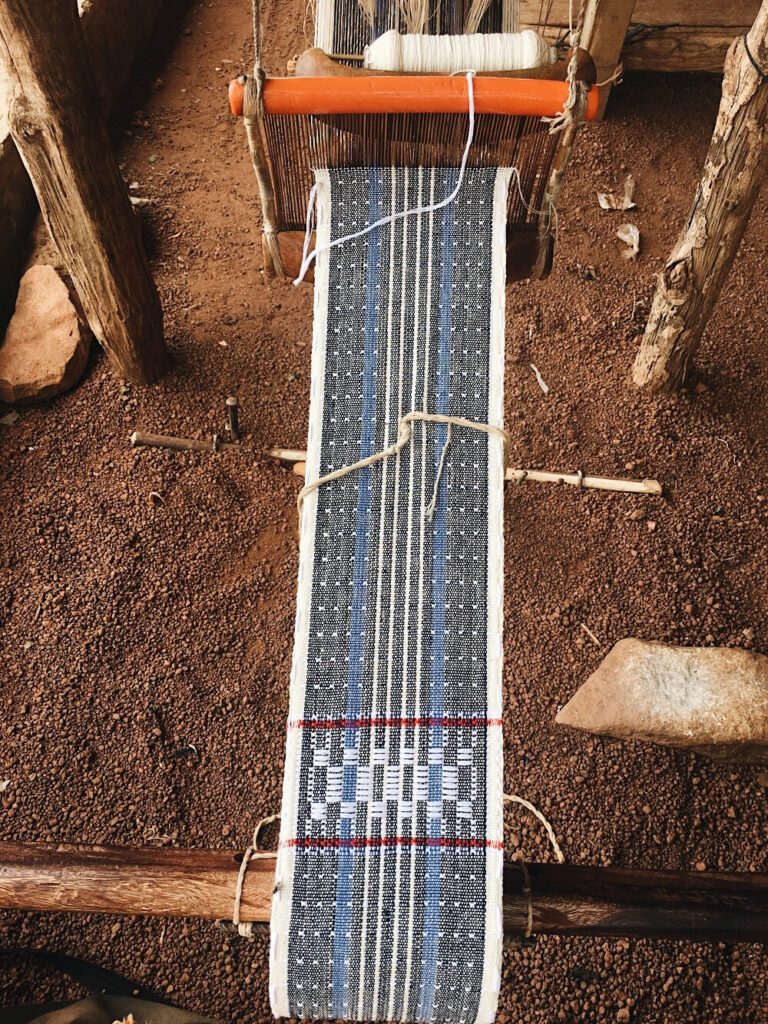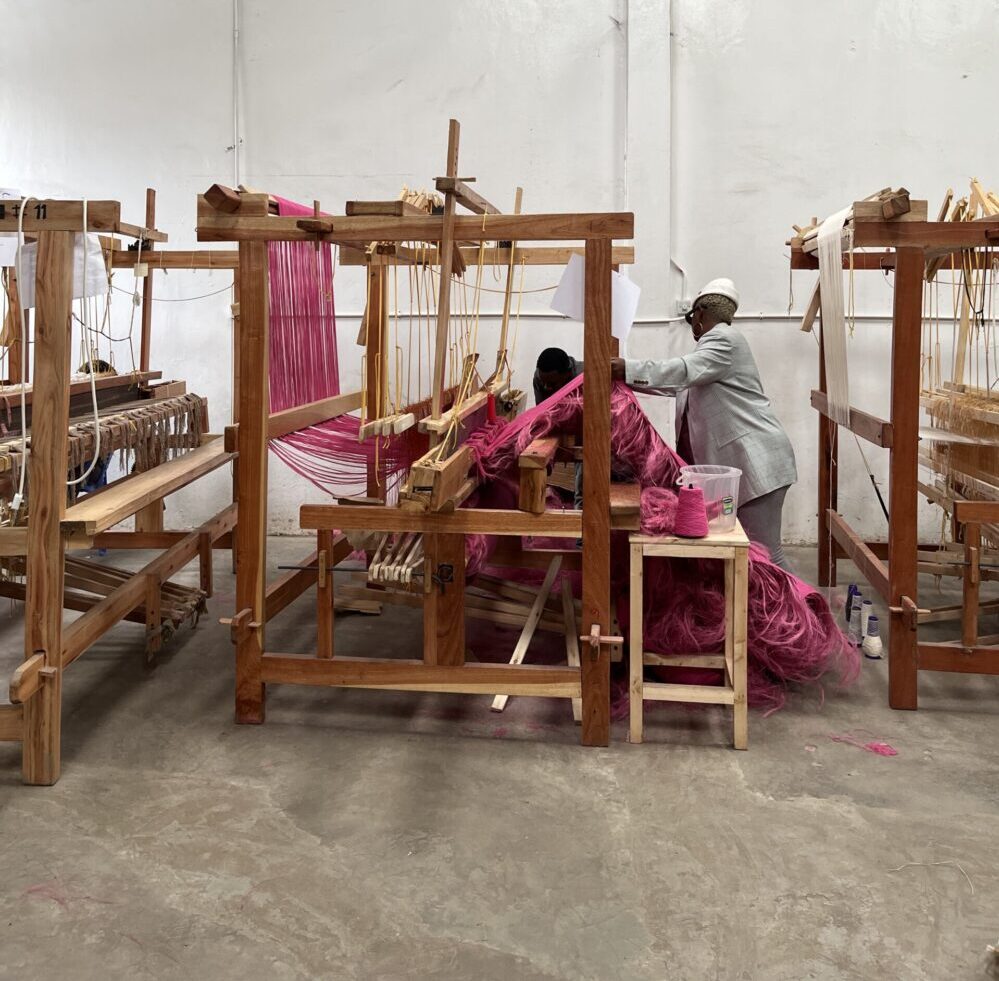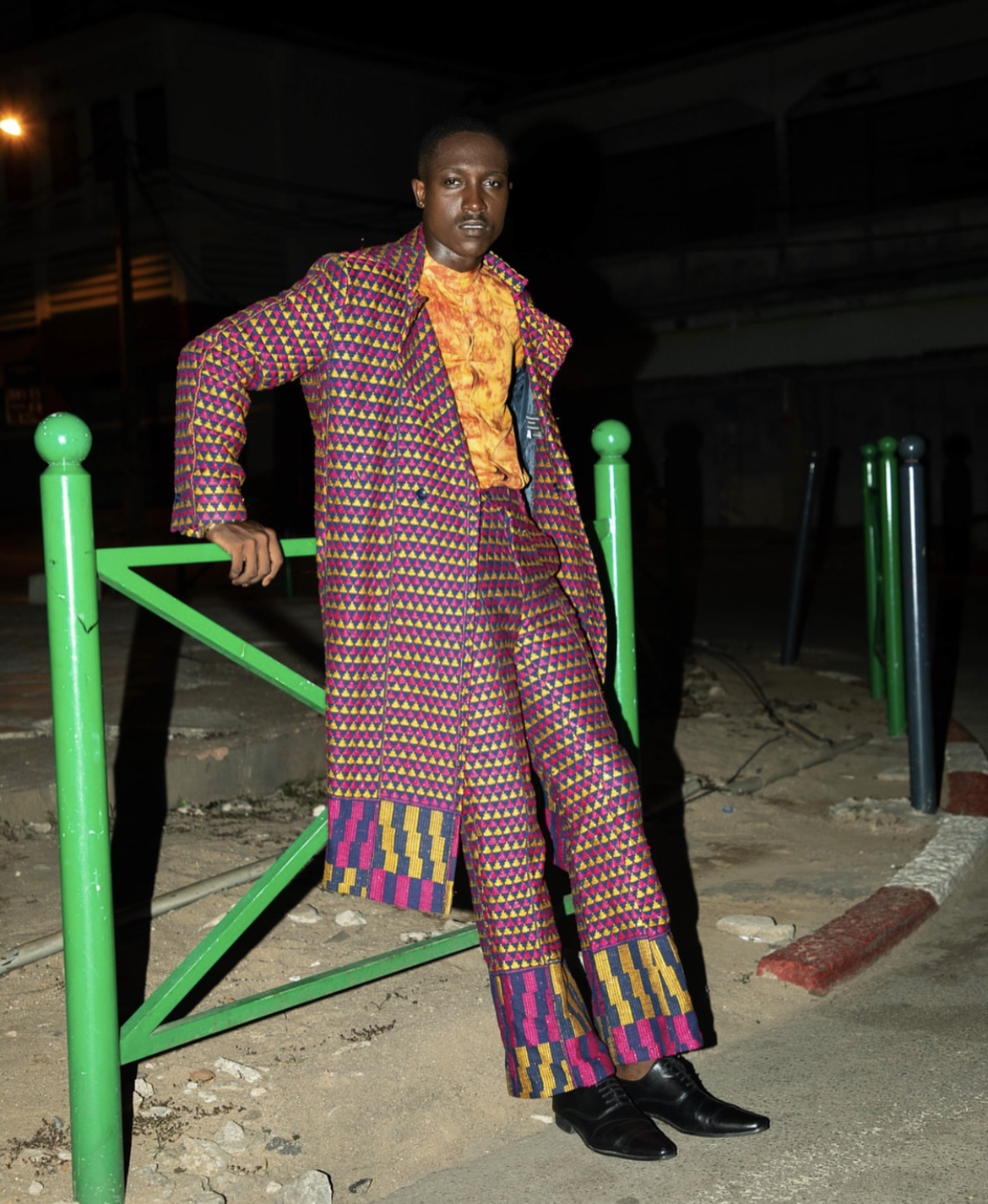
Aristide Loua is taking Ivorian artisanship on a global adventure
Each of Aristide Loua’s finely tailored looks is an expression of a cosmopolitan African, whether residing at home, or far from it. The Kente Gentlemen founder was born in Côte d’Ivoire, spent some of his childhood in India and relocated to the US with dreams of working on Wall Street. But a “crisis of identity” led him to fashion as an expression of his heritage and selfhood. Since launching out of Abidjan in 2017, the brand has developed a minimalist yet vivid style that brings together local artisanal textiles with his influences from around the world. Here Loau delves into the details.

What was your route into fashion?
Growing up, I was always fascinated by my father’s suits and my mother’s appreciation of textiles. Then after studying mathematics in New York and working in finance in South Carolina, she sent me two shirts in wax print, which at that time I believed to be the epitome of African fashion. So, I began to see clothing as a way of sharing my culture and the emotions I wanted to express.
What were your first steps to shaping the brand?
I returned home in 2015 and began to do my research. Dutch wax is something our parents and grandparents were able to embrace but I wanted to use local textiles so I travelled to villages to meet with artisans. I sat with them to hear their stories and understand their techniques. Then I began to design my own vibrant and warm textiles in collaboration with them. And we’ve been working together ever since, trying out new techniques and growing together.
How does the collaborative relationship work today?
It starts with drawing my designs, taking into consideration the limitations of the weaving process. We can’t do circles but there’s geometric shapes. They do samples, which I test and play around with, and then we produce. If it’s rainy season the waiting times can be very long and sometimes there’s issues with the dyes. But it’s such a meticulous process that the challenges are all part of the beauty of it.
What impact does the brand make on the local industry?
For me, the math is quite simple. The more people buy into local textiles, the more revenue the artisans receive – instead of money going to the big textile companies. These are techniques that have existed for centuries. Kente is the main handweaving process known throughout West Africa but there are so many sub categories in different regions such as pagne senoufo, pagne baoule and pagne de man, as well as other hand dyed tie-dye fabrics. We’re developing accessories with brass and leather artisans and have our tailoring atelier in Abidjan. Plus, I’ve had the opportunity to work with communities of weavers in Ghana and in Burkina Faso, too.
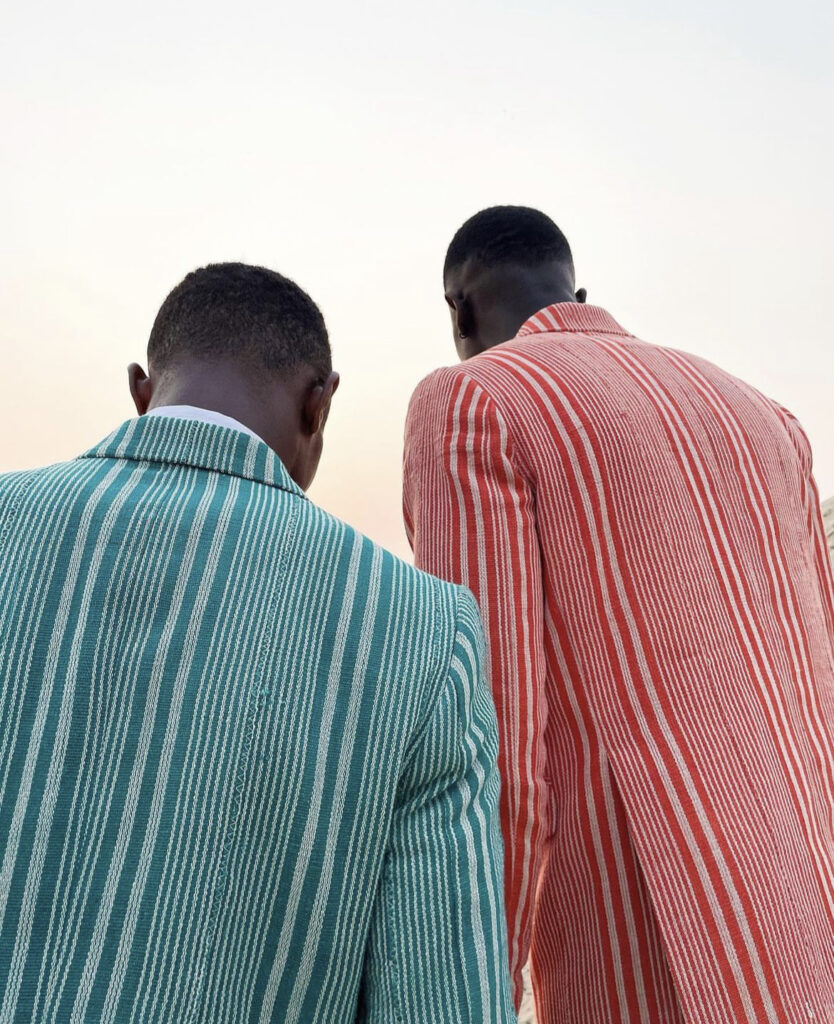
“Handweaving is a meticulous process but the challenges are all part of the beauty of it”
What is your definition of sustainability?
A lot of African brands are inherently sustainable due to our lack of resources but we make the best of what we have. Kente Gentlemen works on a pre-order basis so we don’t overproduce and I’m intentional about the fact that we don’t subscribe to a seasonal calendar. Collections are ready when they’re ready and each piece is timeless. For me, that’s being sustainable.
Tell us about your next collection, Dreams of Summer SS25.
It’s light, fun, elegant, chic. You know, what it means to embrace a summer aesthetic. I’ve used a fresh colour palette of whites and blues and have mixed linen pieces in with the hand-woven ones. I can’t wait to put it out there.
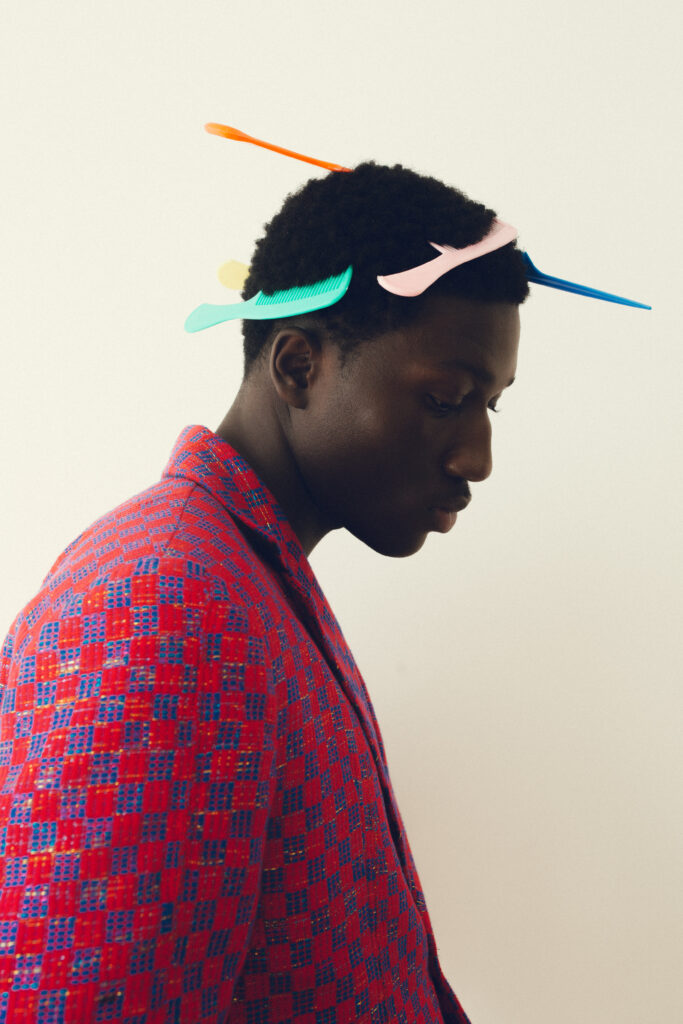
What has been some career highs so far?
Last year I won the Designer Africa Fashion Up 2023 prize, which was an event in Paris sponsored by Balenciaga. And I’ve loved being invited to various fashion weeks in Shanghai, Lisbon and Lagos. To receive that appreciation tells me we’re going in the right direction. But when I think that I started out with $1,500 start-up money and no background in fashion, and we’ve got to where we are now, that’s an achievement in itself.
How would you frame the fashion scene in Abidjan now?
Côte d’Ivoire was devastated by over 10 years of political crisis. But when peace arrived, there was a huge boom in terms of creativity from the youth. Now we have brands like Loza Maléombho, Lafalaise Dion and Tongoro and the scene is growing so I’m proud of that. We each have our own distinct narrative and mission and we just want to keep building, block by block.
